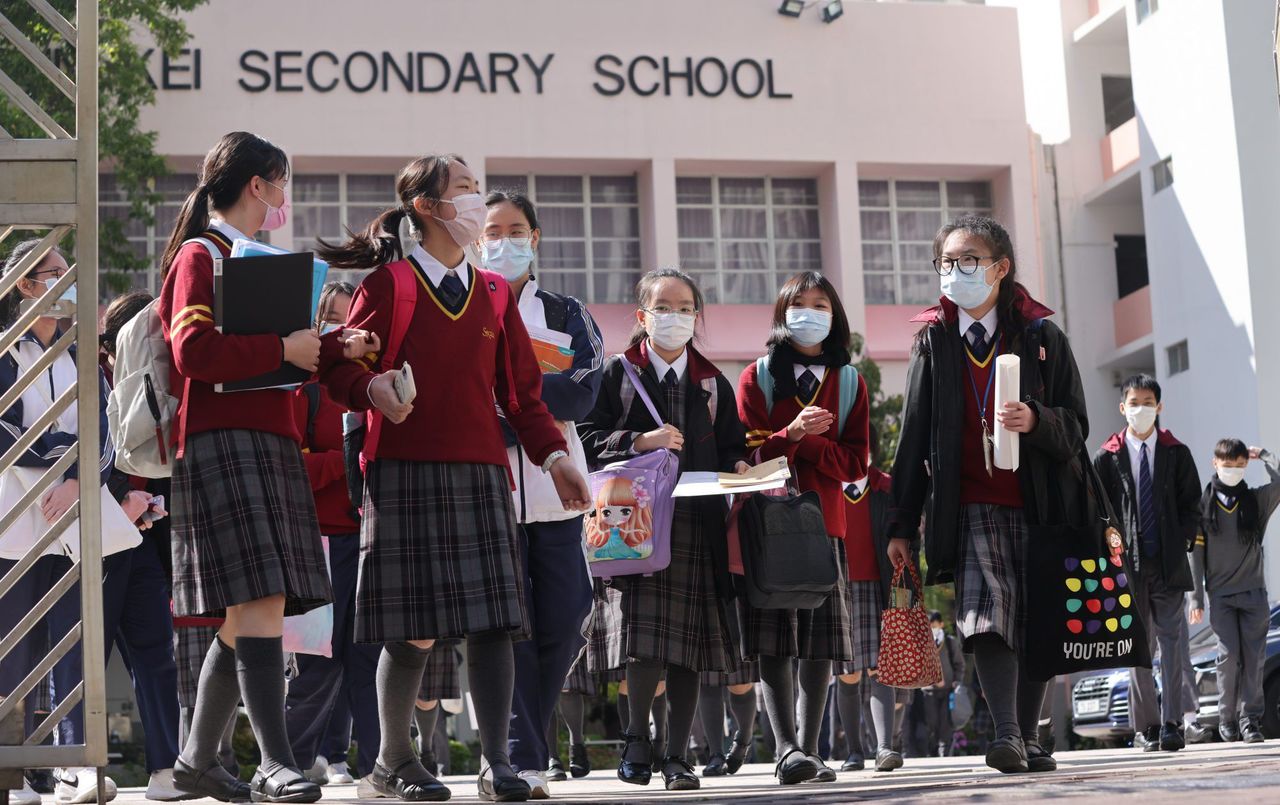Hong Kong News

8-year-high exit rate for native English teachers at Hong Kong secondary schools
The turnover rate for native-speaking English teachers working in Hong Kong secondary schools over the last academic year has reached its highest level in eight years at 13 per cent, according to the Education Bureau.
The figure was revealed on Wednesday in a written reply from the bureau to lawmaker Michael Tien Puk-sun. The legislator had previously asked if native-speaking English teachers were leaving Hong Kong because of the city’s strict anti-epidemic measures.
The education authority said the turnover rates for native-speaking English teachers at primary and secondary schools were 11 per cent and 13 per cent respectively during the academic year 2020-21.
The 13 per cent attrition rate among native-speaking English educators working at secondary schools indicated a marked increase from the 9 per cent turnover level in 2019-20.
Among primary schools, the turnover rate for such teachers in 2019-20 was 16 per cent, indicating a double-digit loss over the past five years.
According to the bureau, the city’s primary and secondary schools employ about 852 educators under the Native-speaking English Teacher Scheme as of February 2022.
However, Tien’s question to the education authority cited several schools that had attributed the departure of native-speaking English staff to the city’s strict quarantine requirements for arrivals.
But Secretary for Education Kevin Yeung Yun-hung said in the same reply to the legislator that such teachers had been willing to comply with anti-epidemic restrictions to prevent the import of coronavirus cases from overseas.
“There are no substantive grounds for attributing the departure of [native-speaking English teachers] or their decision to or not to come to teach in Hong Kong to our compulsory quarantine measures,” he said.
Yeung added that some educators may have resigned because of retirement plans, family reunions or an interest in working in other countries, with the minister saying the potential reasons were “personal”.
He said the bureau still retained a sufficient number of native-speaking English teachers to fill vacancies and could maintain a stable team of such educators in the coming academic year.
 A school principal has said that the turnover for native-speaking
English teachers could partly be attributed to misconceptions about Hong
Kong’s current social and political environment.
A school principal has said that the turnover for native-speaking
English teachers could partly be attributed to misconceptions about Hong
Kong’s current social and political environment.
The pay package offered to such teachers was “very attractive”, Yeung said, with the potential to encourage them to continue in their current positions.
“Apart from the basic salary, eligible [native-speaking English teachers] are entitled to various fringe benefits including special allowance, passage, baggage allowance, medical allowance, gratuity and cash retention incentive,” he said.
The current starting salary level for such teachers is HK$31,750 (US$4,052), with wages capped at HK$61,415 for primary schools and HK$73,775 for secondary schools.
Passage, baggage, medical allowances and a special allowance of HK$20,989 per month are also provided for educators whose normal place of residence is not in Hong Kong.
Teachers receive a 15 per cent gratuity upon finishing a contract, with a cash retention incentive of 5 to 10 per cent of base salary for those who work for two years or more, the bureau said.
But New Territories School Heads Association vice-chairman Chu Wai-lam said some native-speaking English teachers had given up their lucrative jobs in Hong Kong over the past year to return to their home countries for family reasons, with many uncertain about how long the city’s strict quarantine measures would last.
“After all, they could apply for the job again even if they quit, their resignations do not affect the chances of getting the jobs in Hong Kong again,” Chu said.
He added that many schools had advised their staff to take the opportunity to travel to their home countries right after the government brought forward the summer holidays last month.
Wong Ching-yung, principal of Scientia Secondary School in Ho Man Tin, said that some native-speaking English teachers had developed misconceptions about Hong Kong’s political and social situation after the national security law was imposed in 2020, further driving up the turnover rate.
“Some foreigners even think working in Hong Kong is so dangerous under the national security law and it makes them quit,” he said.











